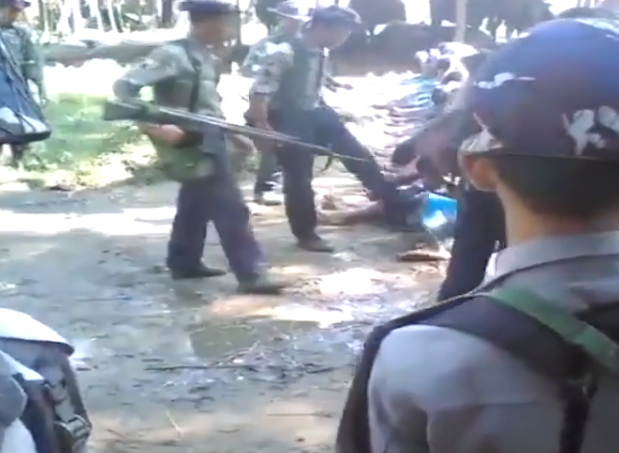Burma: More than 65,000 Muslims flee alleged persecution in Rakhine state
The Burmese government denies ethnic Rohingya are being mistreated

Your support helps us to tell the story
From reproductive rights to climate change to Big Tech, The Independent is on the ground when the story is developing. Whether it's investigating the financials of Elon Musk's pro-Trump PAC or producing our latest documentary, 'The A Word', which shines a light on the American women fighting for reproductive rights, we know how important it is to parse out the facts from the messaging.
At such a critical moment in US history, we need reporters on the ground. Your donation allows us to keep sending journalists to speak to both sides of the story.
The Independent is trusted by Americans across the entire political spectrum. And unlike many other quality news outlets, we choose not to lock Americans out of our reporting and analysis with paywalls. We believe quality journalism should be available to everyone, paid for by those who can afford it.
Your support makes all the difference.More than 65,000 Rohingya Muslims have fled Burma since a new flare-up in violence began, the UN has said, amid continued reports of the minority group suffering murder, rape and arson at the hands of the Burmese military.
A third of the refugees left in the last week alone as reports of the treatment of the Rohingya prompted a visit from the UN’s human rights envoy for Burma, Yanghee Lee.
The Burmese government denies any mistreatment of the Rohingya minority and, in an official commission's report, said there was no evidence of genocide or ethnic cleansing taking place.
The UN’s Office for the Coordination of Humanitarian Affairs announced the sudden rise in the refugees in its weekly report.
“Over the past week, 22,000 new arrivals were reported to have crossed the border from Rakhine state,” it said.
“As of 5 January, an estimated 65,000 people are residing in registered camps, makeshift settlements and host communities in Cox’s Bazaar,” in Bangladesh.
It comes after the Burmese military launched a crackdown in Rakhine state, where the majority of Rohingya live. Human rights groups have reported a series of abuses committed by soldiers but the Burmese government has denied the allegations.
Ms Lee was reportedly prevented from visiting the site of one of the violent outbreaks in Kachin state because of “security concerns”.
Join our commenting forum
Join thought-provoking conversations, follow other Independent readers and see their replies
Comments